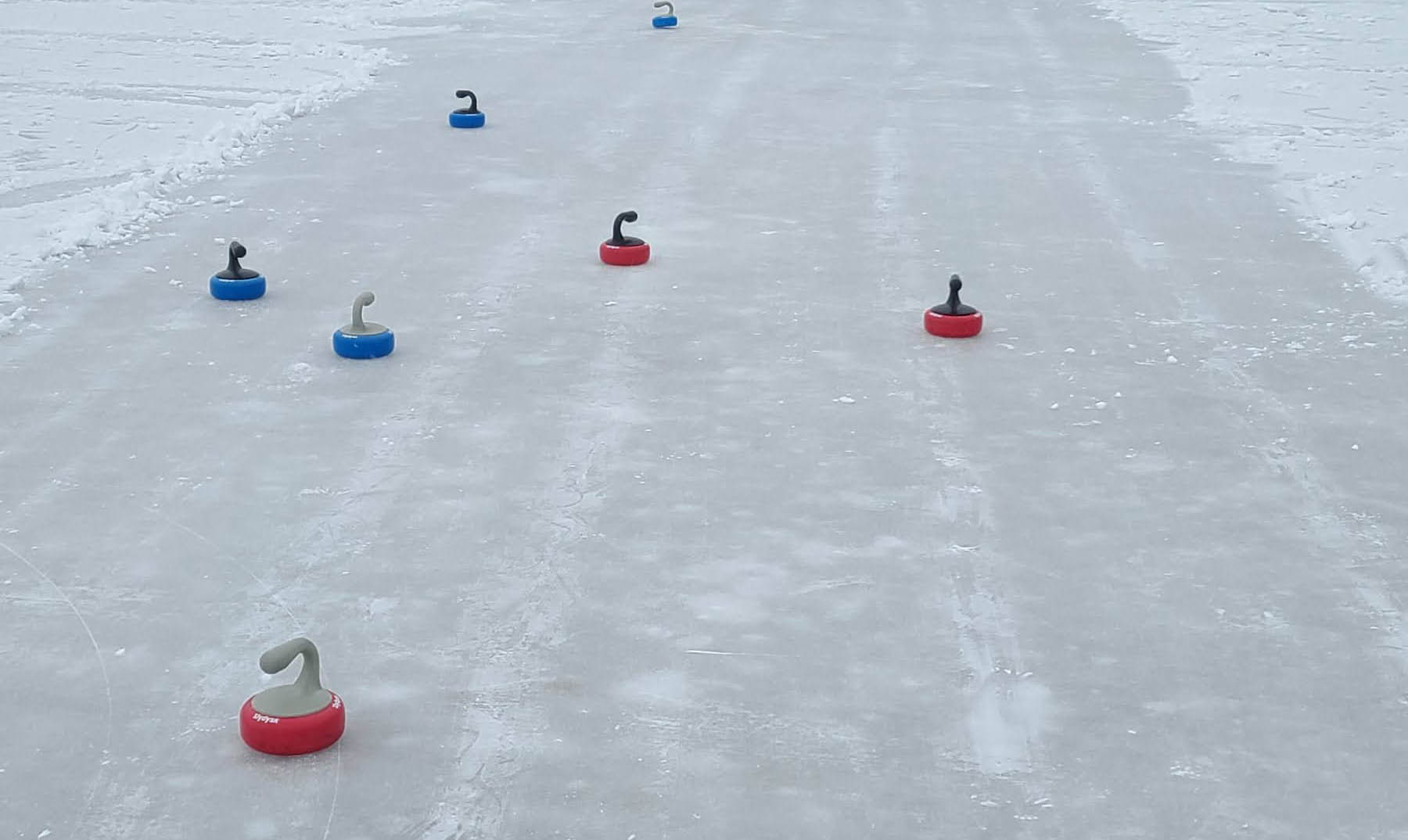General Play Description
Equipment
An Icebocce game set is composed of 8 large “Icebocce Dysks” also called curls (4 of one color and 4 of another color) and one smaller rubber dysk called the ”Jack” also called a puck.

Teams:
The game is played between two teams with from 1 to 4 players on each team.
Players on each team:
1 Player – 4 dysks each – walk end to end
2 Players – 4 dysks each with one player at each end or 2 dysks each & walk end to end
3 Players – 2 dysks each for 2 players at one end and 4 dysks for 1 player at other end
4 Players – 2 dysks each with 2 players at each end
Game Description
The object of the game of Icebocce is for a team to get as many of their dysks as close to the jack as possible.
Begin the match with the flip of a coin between teams. The winner of the coin flip has the first toss of the jack and chooses the color of the team’s dysks. A team member throws the jack and slides the first dysk as close to the jack as possible. (The jack must end up across the center line and at least 12 inches away from the sideboards or backboard without hitting the backboard. If a thrower fails to do this, the jack throw goes to the other team. If the second throw fails to place the jack into play, the jack is placed approximately in the center of the striking foul line at the opposite end of the court. The original thrower of the jack always throws the first dysk.) Next, a player of the opposing team slides a dysk and tries to get closer to the jack. A team must continue to slide their dysks until it gets closer to the jack than the closest dysk of their opponents.
Players must deliver all dysks from behind the pointing foul line. Dysks may be bounced or played against the sideboards. A dysk hitting the backboard without first touching the jack or another dysk is a dead dysk and is removed from play.
While the object is to get close to the jack, it is permissible for a player to play the dysk in order to knock away an opponent’s dysk. A player “hitting” or “striking” the opponent’s dysk must release the dysk before crossing the striking foul line. Likewise, a player may play a dysk so as to knock or move the jack toward another of their own team’s dysks. The jack is live anywhere on the court, except if it comes back behind the mid-court line or is knocked out of the court, at which time the frame is dead and play begins again at the opposite end.
When all dysks have been played, one team is awarded one point for each dysk closer to the jack than the closest dysk of the opposing team. Thus, a team may score 1-4 points for each end of play. The other team scores no points. If the closest dysk of each team is equal in distance from the jack, no points are awarded for the frame.
The team that scores in one frame starts the next frame by throwing out the jack and playing the first dysk.
The game is won by the first team scoring 12 points. The game ends when the 12th point is scored and the other team has played all 4 dysks.
If the teams end up with a tie score after 12 points are scored. The teams will continue play until one team out scores the other team to end play.
If the teams play another game, the team members switch ends of the court and the winning team throws out the jack and delivers the first dysk.

